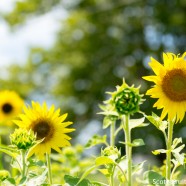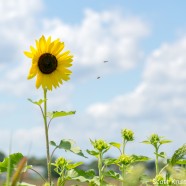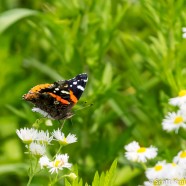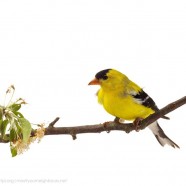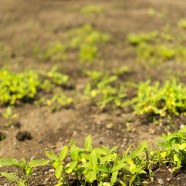Sunflower Sky
Every day, especially after all that water this week, these sunflowers are creeping closer to the sky. The cold front brought not only rain but more birds and butterflies on the wing south. Keep watching for new faces every day!
Read MoreSunflowers Emerging
It’s happening! Sunflowers are blooming and their wonderful shades are emerging across our summer landscape. These will serve as tremendous food sources for birds on the way south. While our aerial insectivores are flying to their winter quarters right now, the seed eaters will be moving in the coming weeks and months. For now the flowers are all for the insects…
Read MoreRed Admiral Feeding
The Red Admiral butterfly parade continues! Many have been pouring through the north, and are often noted as having been a primary Purple Martin food source this summer with bits of them left at gourd colonies. This individual paused for a moment and actually allowed me to snap off a shot as many typically have been flying by me without a second look. This sort of flight year really does help our aerial insectivores, a good example of the importance of our food web from bottom to top. Scott Kruitbosch Conservation & Outreach Coordinator
Read MoreAmerican Goldfinch (Spinus tristis)
This American Goldfinch (Spinus tristis) is a good example of the species that will be loving the recently posted sunflower plot! Photographed by RTPI Affiliate Sean Graesser for the Meet Your Neighbours global biodiversity project in Connecticut while on assignment for the Roger Tory Peterson Institute of Natural History.
Read MoreSunflower Plot
The first “fall” migrant birds are already dispersing or moving about! Young swallows are leaving their nesting areas, shorebirds are beginning to come south, and flycatchers that may have had failed nests are already on the way to the wintering grounds. Later this autumn this sunflower plot will be a tremendously attractive spot to many passerine migrants looking for a feeding or resting area. Let’s keep up a good balance of rain and sunshine, please! For the birds.
Read More



